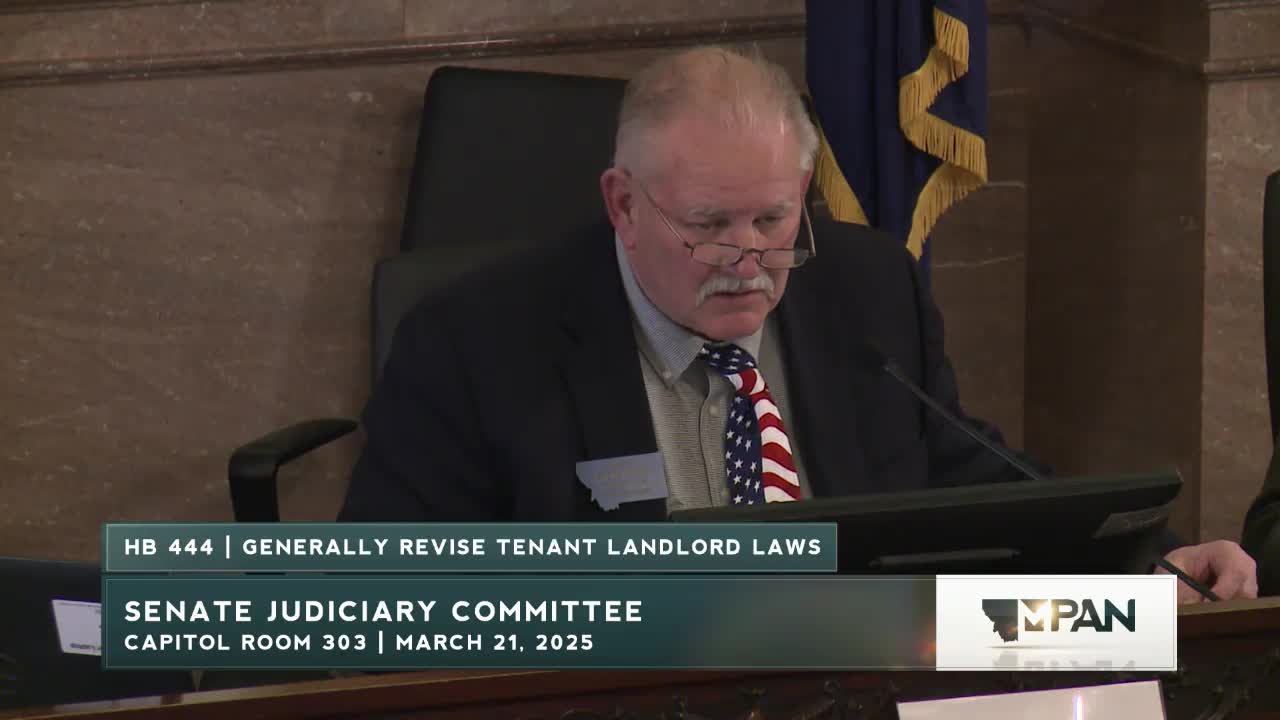Legislation to ban shackling during labor draws broad support at hearing, is tabled after tied committee vote
Get AI-powered insights, summaries, and transcripts
Subscribe
Summary
Supporters including medical associations, ACLU and advocates said House Bill 475 would codify existing standards banning restraints on pregnant persons in labor; the committee vote on concurrence tied and the bill was tabled.
The Senate Judiciary Committee heard strong, unanimous‑style support from medical, civil‑rights and advocacy groups for House Bill 475, a measure that would restrict the use of restraints on pregnant inmates in county jails during labor, delivery and immediate postpartum recovery. After debate during executive action the committee did not concur and ultimately tabled the bill.
Representative Eames Reavis (sponsor) said the bill is modeled on statute from other states and aims to make clear that restraints during childbirth are unacceptable except where an established, articulable security risk exists. "I was told a story... where her client was in jail… and her chain was strapped to the bed. That image has never left me," Reavis said, explaining the measure’s purpose and noting that 41 states have some statutory restriction on shackling in labor.
Proponents who testified included the ACLU of Montana, the Montana Medical Association, the American College of Obstetricians and Gynecologists (represented by a local OB‑GYN), Catalyst Montana, the Montana Coalition Against Domestic and Sexual Violence and others. Medical witnesses said shackling during labor poses clear health risks to mother and baby, impedes medical care, and contradicts American Medical Association and ACOG guidance.
"The use of restraints on pregnant and postpartum women has been identified as medically dangerous," said John Rhodes of Catalyst Montana. OB‑GYN Leah Miller said restraints make it harder to provide care and worsen outcomes. Henry Seaton of the ACLU of Montana cited constitutional and liability concerns and called the bill a way to guarantee humane treatment and reduce institutional risk.
Committee members discussed whether policy already in jail standards or Department of Corrections practice covers the conduct. Sponsor and witnesses said the practice is rare but does occur and that a statutory ban with limited exceptions would reduce the chance of isolated incidents and reflect Montana values. The deputy administrator of state trust lands and other DNRC witnesses were not involved in this item.
During executive action Senator Ricky moved concurrence; a roll call vote resulted in a tie and the motion failed. The transcript shows mixed views among senators about whether codifying the standard was necessary (some members called it "code clutter") and whether the legislative floor was the right place to enshrine the policy. After the failed concurrence vote Senator Ricky moved to table the bill; the chair announced the motion to table carried without objection and the bill was tabled.
Why it matters: The bill would align Montana with a national trend to prohibit shackling in labor and delivery, citing medical and human‑rights concerns. It drew support from medical, civil‑liberties and advocacy groups; committee questions focused on whether administrative standards already in use render a statute redundant and on preserving limited exceptions for safety.
Next steps: Tabled in committee; sponsor and supporters may seek further floor or amendment strategies in future.
